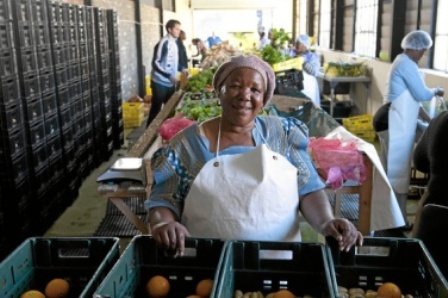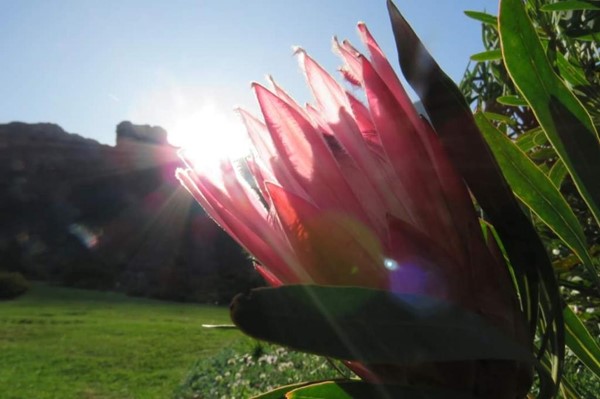Leonie Joubert points out in her remarkable book The Hungry Season that, as urbanisation continues apace, food security in our cities will be the challenge of the century, far surpassing in scale the rural poverty with which we are still grappling. On top of this, climate change is set to wreak havoc with existing systems.
In a nutshell, food security means consistent access to nutritious and culturally acceptable food from a trustworthy source. To achieve this, growing food within the city is coming to be seen as a necessity.
The issues are complex and not always apparent. People can be plump but badly malnourished. Children may get the calorie count but suffer from deficiency diseases. Stores can be brimming with produce but the people surrounding them don’t have the means to buy from them. Whole nations can starve because markets go awry even when there is an abundance of a crop, as happened in the rice panic of 2008. And the wealthy, too, can find their supermarket shelves empty thanks to a volcano in Iceland or revolution in the streets.
There is no shortage of ideas to help to solve these problems but solutions need to be thought through. For example, without the right infrastructure and knowledge, growing vegetables in the backyard and recycling grey water from the household can increase contamination from waterborne diseases and recontamination within a family, especially in overcrowded, poorly resourced settlements.
Worldwide, many organisations and individuals are tackling these problems.
The three very different projects in Cape Town described here reveal much that is great about South Africa. Whole communities are involved. They are led by individuals who are hopeful and determined, idealistic but practical.
At a food security summit held in May in Khayelitsha, it was clear that the government got the message. But, although local authorities and the government have been open ?and receptive, they seem incapable of lifting more than their little finger, though even doing that minimum has in some cases made all the difference.
Oranjezicht City Farm
The farm, under the tutelage of an organic farmer, Mario Graziani, is still finding its feet, though it has been producing steadily, withstanding predatory Egyptian geese, raiding squirrels and aphid-farming ants, thanks to the hard work of dozens of community volunteers (almost 100) and several full-time apprentices.
The market has also been resurrected, every Saturday, and has a healthy turnover. It is a weekly social gathering for a community proud of what it has achieved, feeling part of the process and taking ownership of its surroundings.
The long-term plan is to be a catalyst for other communities.
Seed
For 12 years now, an organisation called Seed has done pioneering work, among other initiatives, growing “outdoor classrooms” at under-resourced schools and teaching people to garden around their homes.
Leigh Brown, the energetic director of Seed’s Rocklands Urban Abundance Centre in Mitchell’s Plain on the Cape Flats, says: “Through schools, you can reach into and transform whole neighbourhoods.”
The centre is based on the grounds of the Rocklands Primary School, thanks to the foresight of the principal, Kevin Pretorius.
Abalimi Bezekhaya
Based in Khayelitsha, Nyanga and surrounds, Abalimi Bezekhaya (Farmers of Home) is the oldest, biggest and most successful food growing community organisation in Cape Town. It has thousands of micro-farmers on its books and currently 55 gardens on parcels of otherwise underutilised land.
Operations director Christina Thenjiwe Kaba, now 65, says that, when she first started many years ago, people would say: “I’m doing this because I’m not educated, because I’m from Transkei, because I’m not city-born. Now they ask me every day, when can we start. They’ve seen how it changes one’s life.”
Visit Oranjezicht City Farm, Seed and Abalimi
Order your veggies from Harvest of Hope
For full story by Brent Meersmann visit Mail & Guardian






